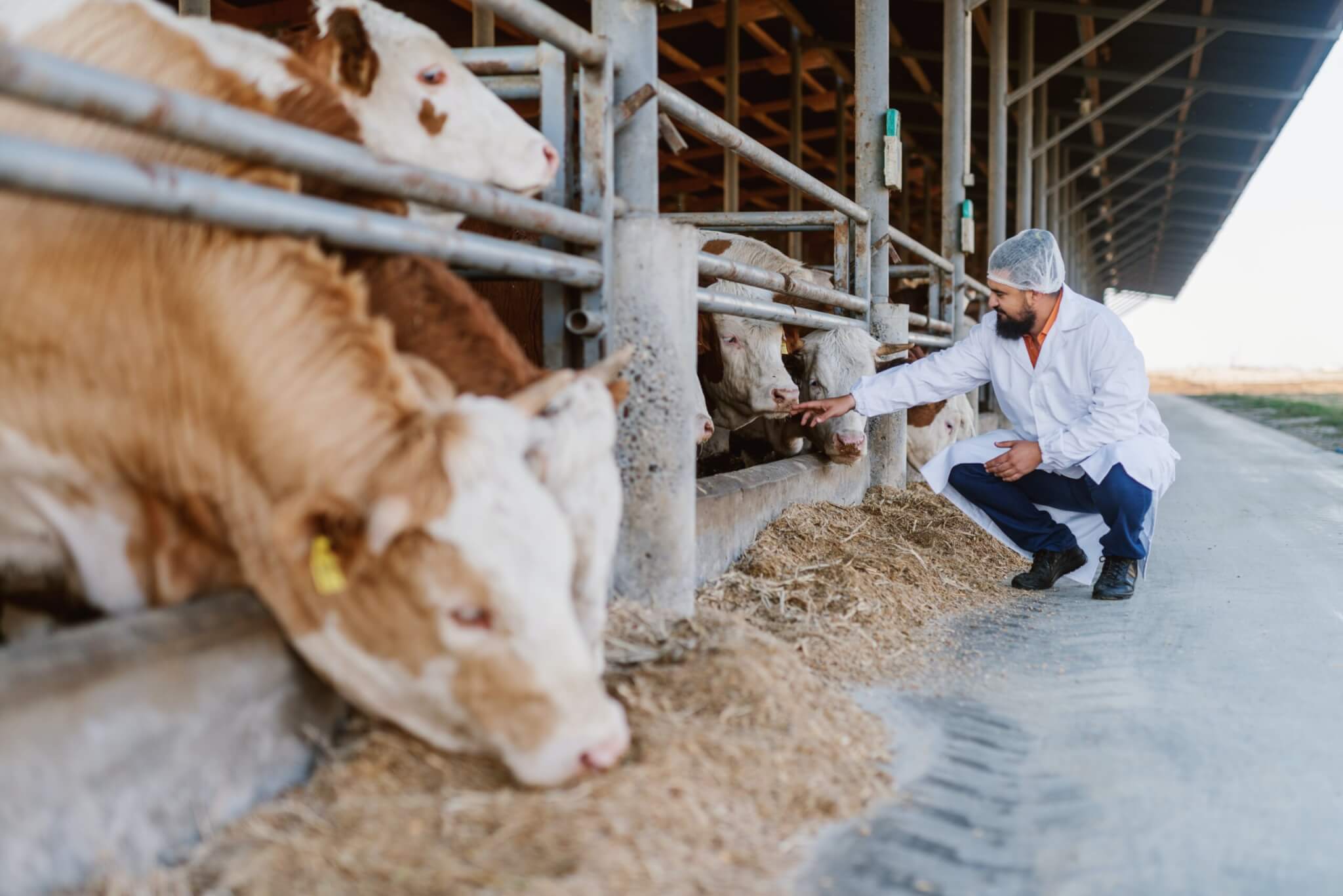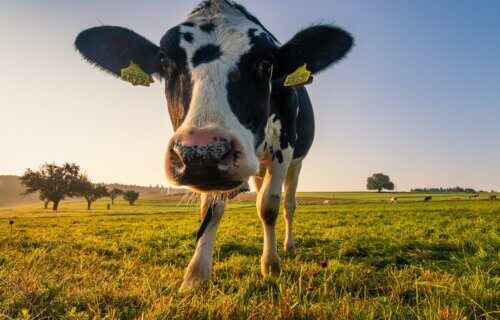PHILADEPLHIA — In the dairy industry, keeping calves happy and healthy is important, especially during weaning. New research shows that a little human interaction can do the trick — particularly if it means a nice neck-scratching for the young cows.
Scientists from the University of Florida might be a welcome, cost-effective discovery for farmers. Their new study shows that socialization with other calves and humans, even if only for five minutes, can improve their well-being.
“Calves are active and seek stimulation following milk-feeding, so providing more things to do, like brushing, may calm calves, reducing sucking behaviors after feeding and increasing rest,” says Emily K. Miller-Cushon, PhD, of the University of Florida Department of Animal Sciences, in a statement.
Previously, studies have demonstrated that calves desire human contact, so this time Cushon and team wanted to explore how interaction with humans affects sucking behaviors. It’s important to understand sucking behaviors because they explain how a calf may be feeling emotionally. “Sucking or chewing on their housing pens or bedding, on their pen-mates or human handlers—all of which are common in the period after calves are fed,” says Miller-Cushon.

To investigate this, the team randomly assigned 28 Holstein heifer calves to either individual or paired housing from birth to seven weeks old. They then standardized their contact with humans over this time period to include feeding and health exams. The calves started weaning at six weeks old, and during these stages the team introduced additional human contact. They video-taped the effects to monitor behavioral changes. Each calf received two days of their normal amount of human contact and two experimental days that included an extra five minutes of neck scratches.
“We know from previous research that calves seem to enjoy tactile contact including brushing from humans. This kind of contact can reduce their heart rates, and calves lean into the scratches and stretch out their necks for more,” explains Miller-Cushon about why they chose neck scratching. “We also see that calves suck on the pen less when they have a stationary brush that they can rub against.”
After analyzing the video recordings, the team found that human contact positively affected calf behavior and promoted tranquility and well-being. Just an extra five minutes was able to reduce sucking behavior and increase the amount of rest after their meals. They especially noticed that the decrease in sucking behavior was especially noticeable in the calves housed alone, showing that socialization with other calves is just as important as human interaction.
Although these findings are helpful, Miller-Cushon states that a limitation is that human contact didn’t get rid of sucking behaviors completely. “Our findings showed benefits of human contact, but the results also suggest that our work is not done in finding the most beneficial and natural methods of feeding and housing our dairy calves,” she concludes.
The findings are published in the journal JDS Communications.
